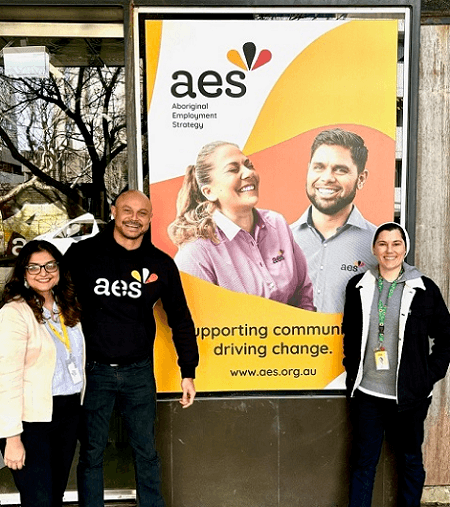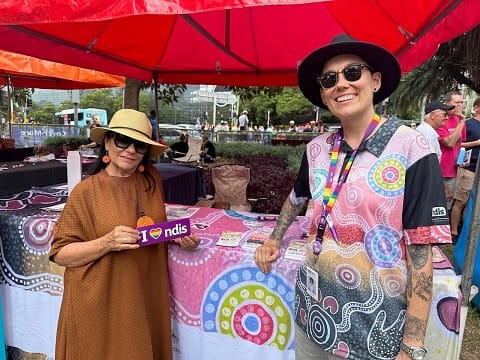Find out about:
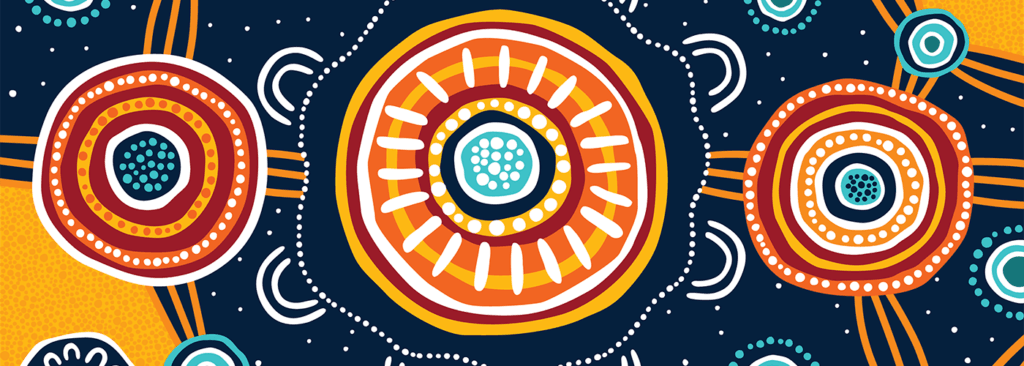
SSI's First Nations Reconciliation artwork
SSI’s values feature at the heart of this artwork with three large circles representing accountability, inclusion and respect (in the centre). A circular pathway of weaving, dotted lines around the central circle represents SSI itself, which strives to uphold these values.
U-symbols surround this weaving pathway and represent First Nations communities who provide cultural knowledge, support and guidance to SSI on issues that relate to Aboriginal and Torres Strait Islander peoples and communities. The U-symbols are two-tiered with one tier representing First Nations staff, and the other tier representing community, who give a voice to the work of SSI.
A network of connected circles by pathways weave across the canvas – intersecting and overlapping – representing the journey of SSI clients. The circles that connect the pathways represent SSI staff in offices throughout NSW to national, serving and supporting people from marginalised communities. Several pathways lead off the circles showing that clients don’t always stay on the one path during their journey.
Six smaller white and teal dotted circles represent SSI’s key outcome areas: safety and stability, learning and growth, economic participation, health and well-being, and society and systems capacity.
Circles surrounded by small u-symbols represent the many partners, stakeholders and communities that work with SSI.
The artwork is set on a midnight sky background with a spattering of stars. The star-filled sky unites every part of Australia and remind us that SSI does work on land that always was, and always will be, Aboriginal land.
The artwork was created by Mumbulla Creative.
Meet some of our team
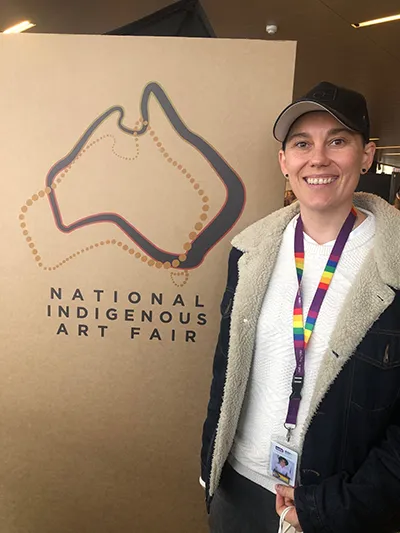
Cultural Safety, Engagement and Partnerships Lead
People & Culture
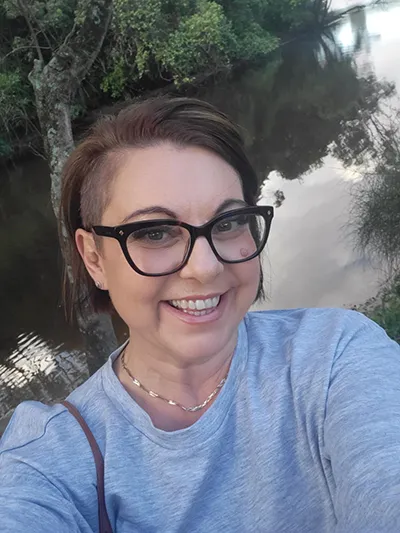
Aboriginal Local Area Coordinator
NDIS Partners in Community program
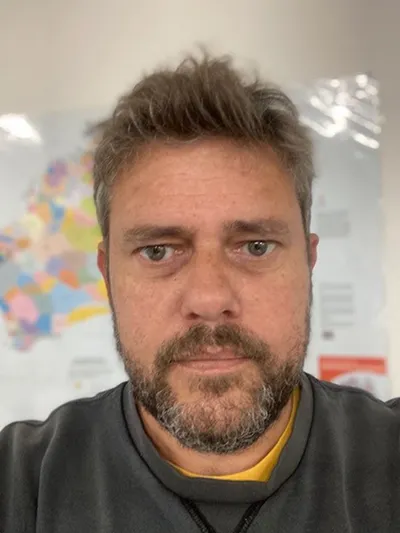
Senior Caseworker
Multicultural Child and Family Program
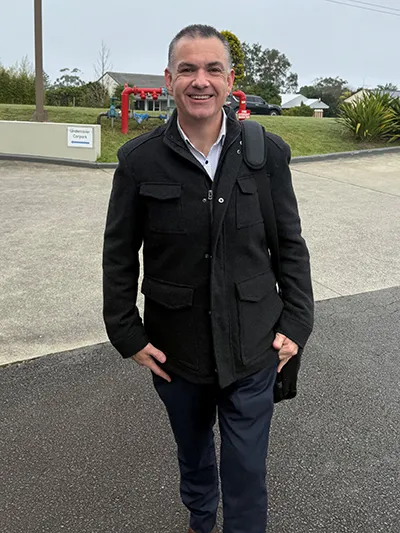
Team Leader
Asylum Seeker Employment Skills Support
Empowering our First Nations employees
Supporting indigenous-owned businesses
Engagement with First Nations community
You’ll often find us at First Nations community events like Yabun and NAIDOC Week having a yarn and connecting with other providers so that we can amplify our impact. We engage and consult with the Aboriginal Land Councils in the areas where we work and deliver our services, ensuring we are sensitive and respectful of local needs.
Integrating First Nations wisdom and experience into all our service delivery
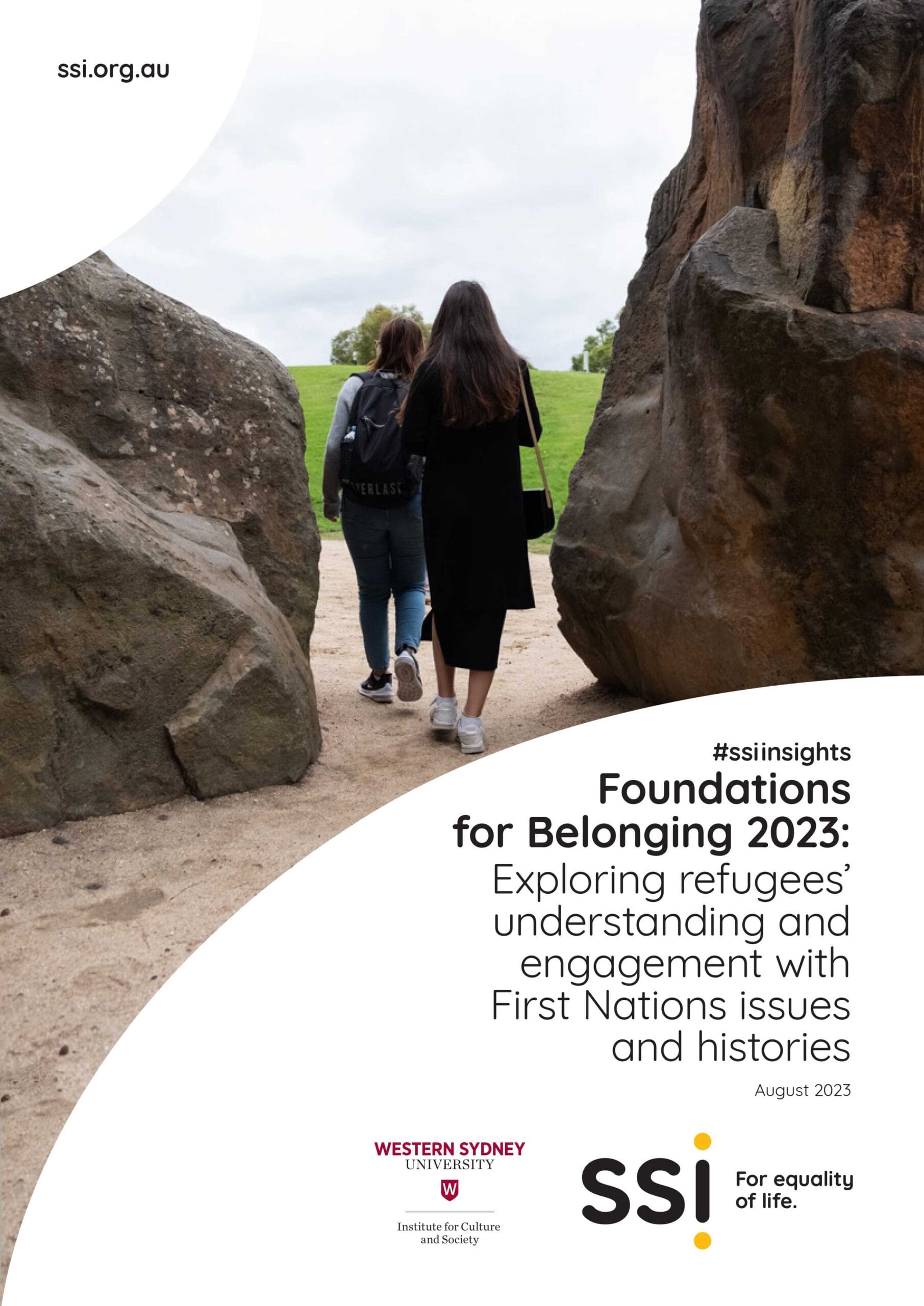
Through our research with Western Sydney University, we know that sharing First Nations experiences with refugees and new migrants can enable belonging and a quicker integration into society. We provide storytelling and cultural workshops for newly arrived migrants and connect our migrant community with First Nations authors and artists to integrate the cultures.
Our first RAP
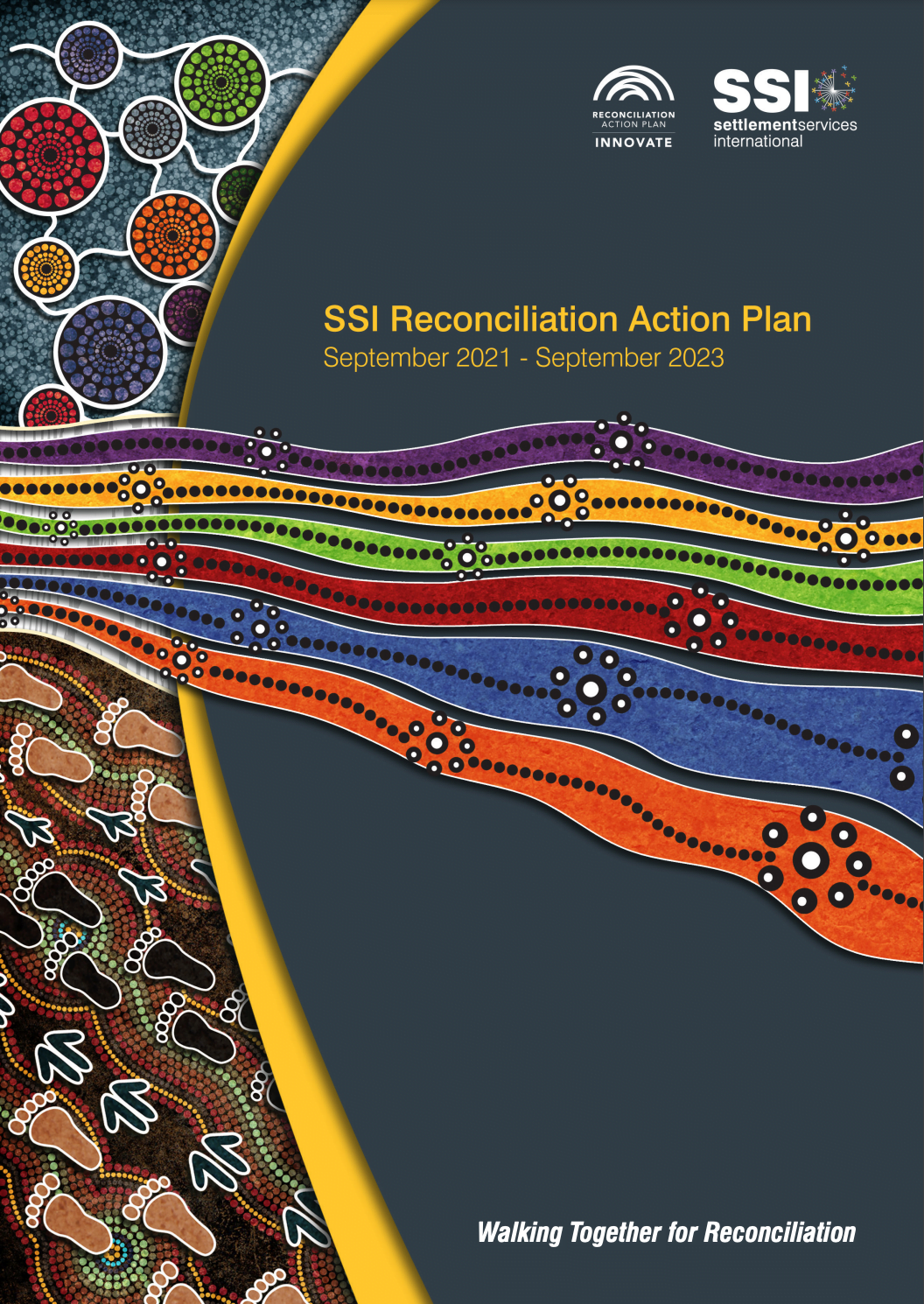
In 2019 we established a Reconciliation Action Plan (RAP) working group called Walking Together to focus attention on developing our first RAP. It was officially launched in February 2022. Artwork by Julie Ruttley, a Gomeroi woman from Northern NSW, and former SSI staff member.
Acknowledgement of Country
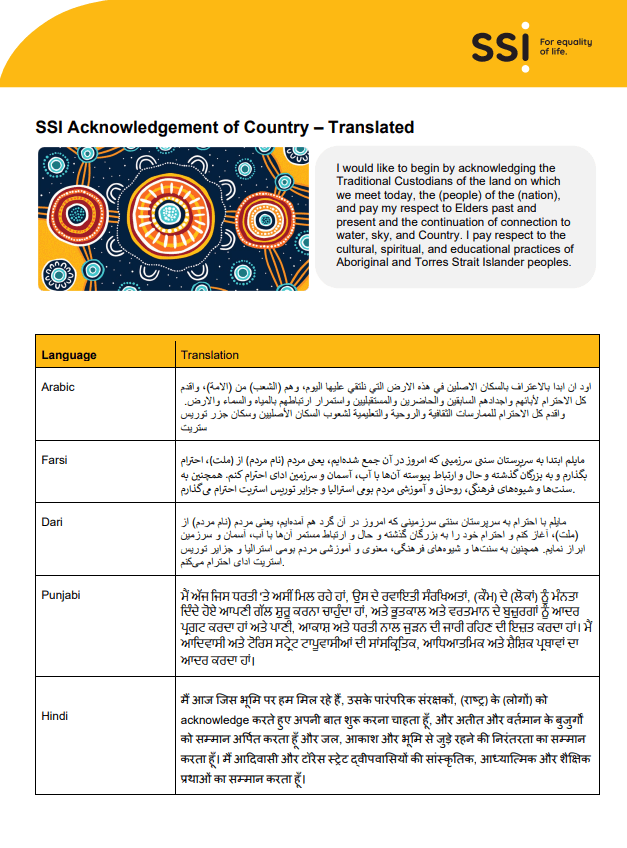
This document contains a suggested Acknowledgement of Country in English and 11 other languages.
Our RAP was launched on 23 February 2022. Watch our video from that day below:


